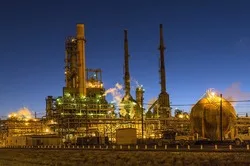
What do you suppose happens when a town cuts its police force and no longer tries to catch people speeding on the most dangerous roads in the town? More speeding, more danger, right?
In fact, if the town didn’t want to catch speeders any more on those roads, what is the surest way to accomplish that result? Cut the police force, right?
Now, what if the speeders themselves were in charge of the town’s decisions about how many police to have, and whether to dedicate them to catching speeders?
Ridiculous example, you say?
Well, that’s exactly what’s happening at the US EPA. The new EPA chief, Scott Pruitt, is a nakedly enthusiastic cheerleader for the oil and gas industry, the biggest polluter on the planet. As the Attorney General of Oklahoma, Pruitt joined with the oil and gas industry to sue EPA to stop enforcement of clean air and water regulations and took direction from the industry about how to do his job. They even ghostwrote letters for Pruitt to put on his government stationery. Masquerading as a public servant, Pruitt was the legal mouthpiece for these massive polluters.
The new EPA budget just proposed by Pruitt and President Trump cuts EPA funding by 31%–the largest for any agency-and much of that comes at the expense of EPA’s role as “cop” on the pollution “beat”. The “cop” here is the EPA’s Office of Enforcement and Compliance Assurance (OECA). The OECA has a force that investigates alleged violations of our clean air and water laws-many of them by oil and gas companies– demands compliance with those laws, and has the power to enforce compliance through a wide range of fines and other penalties.
So, with Pruitt at the head of EPA, the polluters are now in charge. And they have just decided that we will have far fewer pollution “cops” to catch violations of our clean air and water laws. As former EPA chief Carol Browner said, “They’re going to take the environmental cop off the beat.”
With what result, you ask? More pollution, more danger for us? More profit for polluters?
Bingo.
